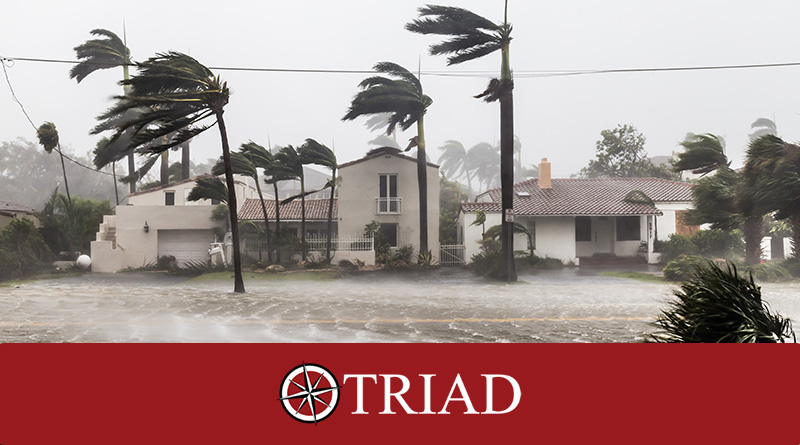Natural Disasters
Florida is the fifth most natural disaster-prone state in the US – the subtropical climate and flat landscape of the sunshine state brew up the perfect storm for, well, storms. When you think of Florida storms, you likely think of hurricanes; but the state experiences more natural disasters than you might assume.
The Hurricane State
Any Florida native has likely experienced a hurricane at some point – the flat, humid land that is Florida makes the sunshine state a breeding ground for hurricanes and tropical storms. The storms are the most severe form of a tropical cyclone, producing winds of a speed over 74 mph. Predicting the exact trajectory of the storm is impossible.
Meteorologists do their best to inform the public 3-5 days before hurricanes arrive, but they can only predict so much. Hurricanes can rapidly regress or increase in category (scale 1-5 measuring the storm’s severity) or die down to a tropical storm. The only way to face off against any scenario hurricane season may provide is to prepare ahead of time.
Making a Plan
Write down all your emergency contacts on paper and keep this on your refrigerator or your phone. Locate the nearest shelter to your home and the most efficient route to get there. If you have a pet, figure out a shelter or pet motel they can stay in.
Prepare an emergency supply kit. This kit should include:
- Flashlights and batteries
- A first aid kit
- Important documents
- At least a two-week supply of any necessary medications
- A full tank of gas in your vehicle
- Phone numbers
- Clothing (rain jackets, sturdy shoes and work gloves)
- Nonperishable food and bottled water
- Any utensils needed, kitchenware and a can opener
- Pet care items
- A fire extinguisher
- Emergency power sources
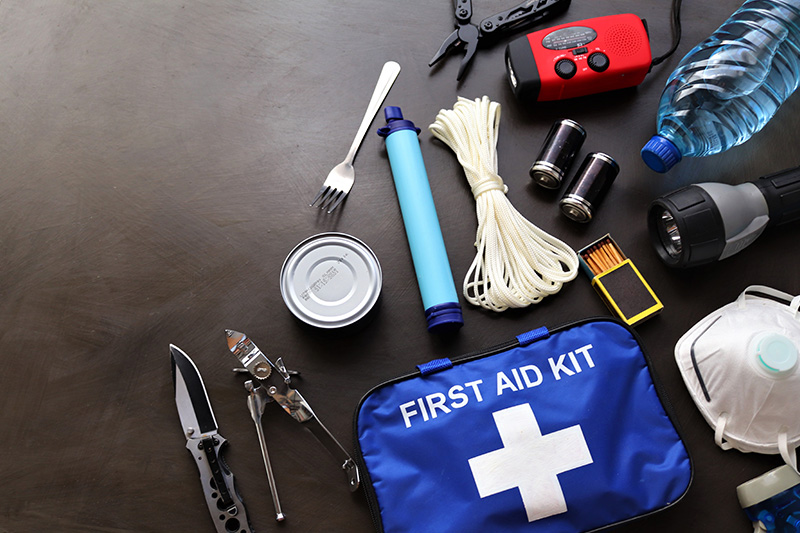
Tropical Storms and Depressions
Tropical storms differ from hurricanes in wind speed – tropical storms are classified by winds of 39 to 73 mph, while hurricanes are over 74 mph in wind speed. Tropical depressions are tropical cyclones with sustained winds of 38 mph or less. While dealing a lesser blow than hurricane-level winds, tropical storms and depressions can still cause damage to your property. If you and your home are hurricane-protected, you’ll likely have protection from the perils of these storms too.
Tornadoes
Tornadoes are violently rotating columns of air touching the ground, usually attached to the base of a thunderstorm. These catastrophic events are among the most destructive natural disasters, with wind speeds up to 300 mph. Florida experiences an average of 66 tornadoes per year, making it the third most tornado-dense state in the US.
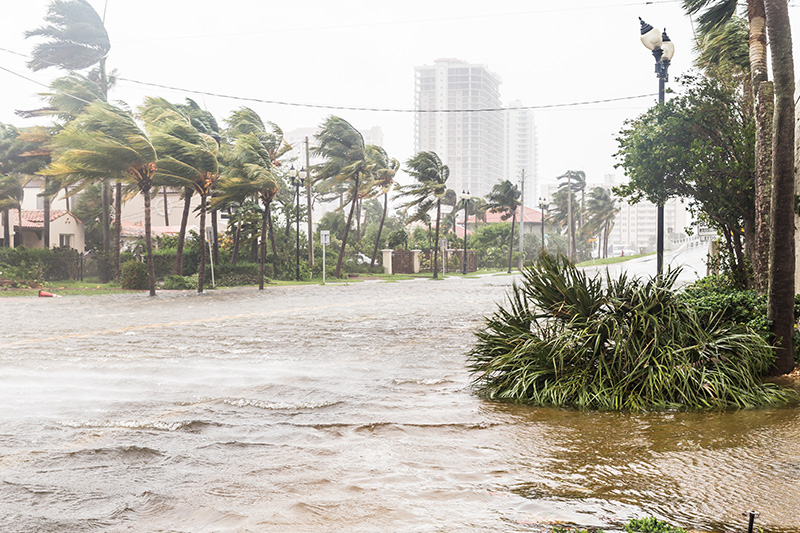
Florida has most tornadoes in the summertime, from June to September, but these storms can happen anytime. Tornadoes are incredibly unpredictable, only giving civilians one to seven hours to prepare for the storm and find shelter. Along with ensuring your structure is built up-to-code and storm-protected (as much as it can be), practice a tornado drill with your household at least once a year. Determine a place to meet after a disaster ahead of time.
Floods
Any of the disasters mentioned above can cause flooding, but flooding has a variety of causes. Since Florida is mostly near or at sea level, flooding is far from uncommon. The top causes of flooding in Florida are the result of heavy thunderstorms, hurricanes and tropical storms. While hurricanes are primarily responsible for flooding, Florida’s average yearly rainfall of 53.7 inches makes it prone to flooding any time of year and the fifth rainiest state in the US.
After the Storm
After ensuring you and your loved ones are safe after experiencing a storm, the next step is to assess the damage. Stay far away from power lines, and beware of the smell of gas; if you smell gas, turn off any gas valves you have.
Take photos of any damage the storm caused. Some examples of damage could be roof lifting and lost shingles, missing or damaged exterior siding, broken windows, destroyed doors, damaged or broken appliances, basement flooding, moisture damage and fire damage.
Call your insurance company as soon as possible after assessing the damage to ensure your claim goes through as quickly as possible. Keep your coverage documentation to ensure you get the coverage you signed up for. You may need a particular insurance plan or premium if you live in an area prone to natural disasters, like flood insurance, so look into this before disaster strikes.
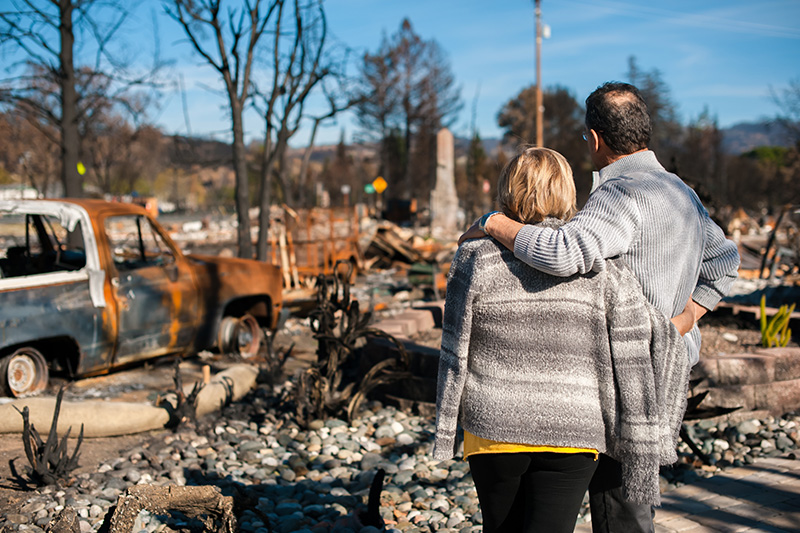
Storm Aftercare
Imagine you wake up one day in your room, spend time with your loved ones over breakfast and then head to work or school. While you’re there, a tornado warning is issued. You’re likely feeling afraid and alone without your family by your side. When the storm is over, you get to head home – but everything has changed. Water has entered your house through a ripped-open roof. The water destroyed your belongings, bed, electronics, and memories. Sure, you’re safe, and that’s of the utmost importance – but you’re facing more than just physical damage.
Natural disasters devastate more than structures. Alongside physical injury and death, survivors of severe weather conditions face life changes, adversities and losses, resulting in mental health struggles like grief, depression and anxiety. Alongside mental health treatment, working with consultants to restore your house can be crucial in healing. Making your house feel like a home again with professional help can be beneficial.
Consulting
If your home is damaged, do not stay there until you know it’s safe. Getting help from a construction consultant can give you a realistic estimate of necessary repairs and costs. Construction consultants guide a project’s setup, define the project clearly, develop and coordinate the design, collect and prepare product information and documents for the client, ensure the client carries out the contract and oversee the work of contractors.
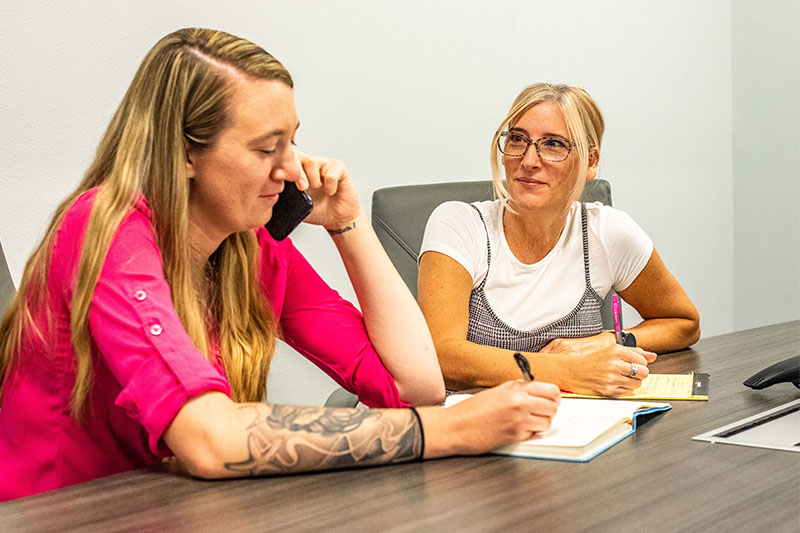
Consultants can be helpful when it comes to repairing your home after filing a claim with your home insurance company by providing a second perspective on the damage and a realistic cost estimate. Hence, you’ll know what insurers can and cannot cover, and have backup when it comes to receiving fair repairs.
Construction
After creating a plan, construction begins. Some common repairs that might be necessary after a storm include roofing, plumbing repair and repair to walls, windows, doors and home interior.
Let Us Help
Natural disasters are challenging, but getting your home back shouldn’t be. Triad takes care of the job, from consulting to rebuilding and restoring, with a smile. We’re happy to work with you and your insurers to restore your home by any means necessary.
Are you experiencing a peril to your property? We want your house to become your home again. We offer free consultations for restoration projects. Contact us today to learn more about our rates, services and insights.

